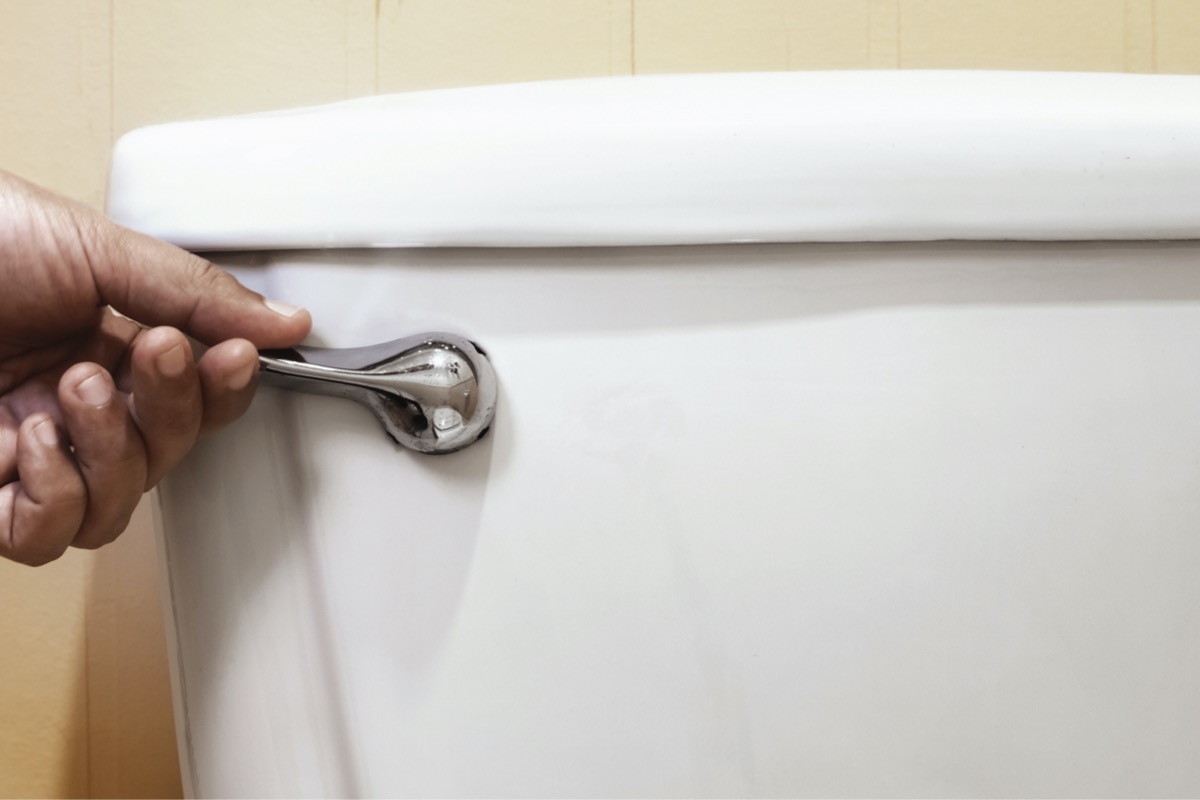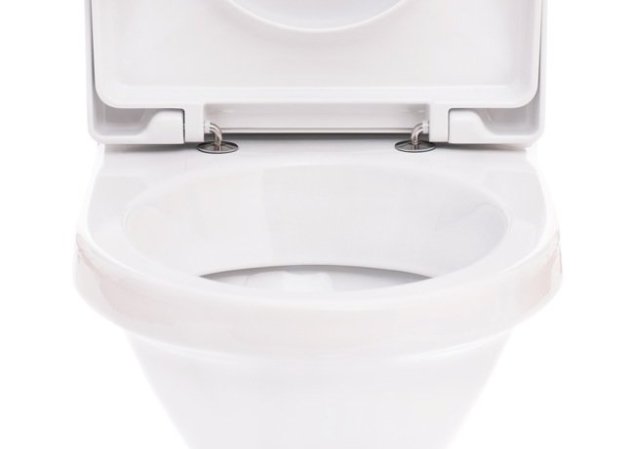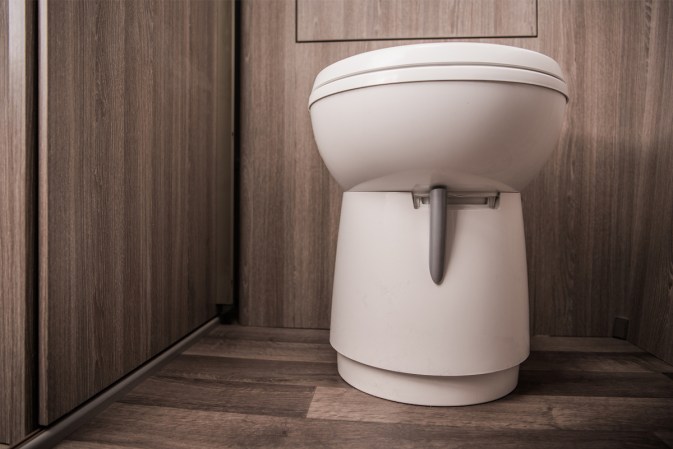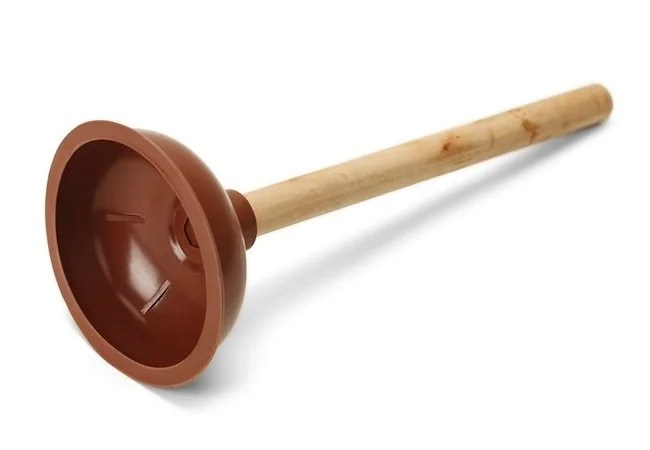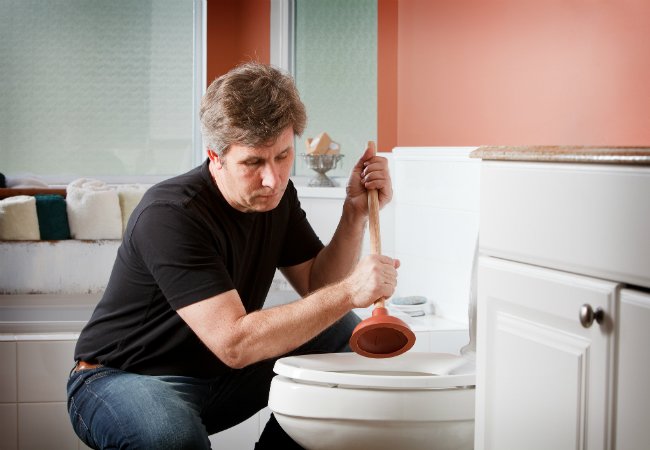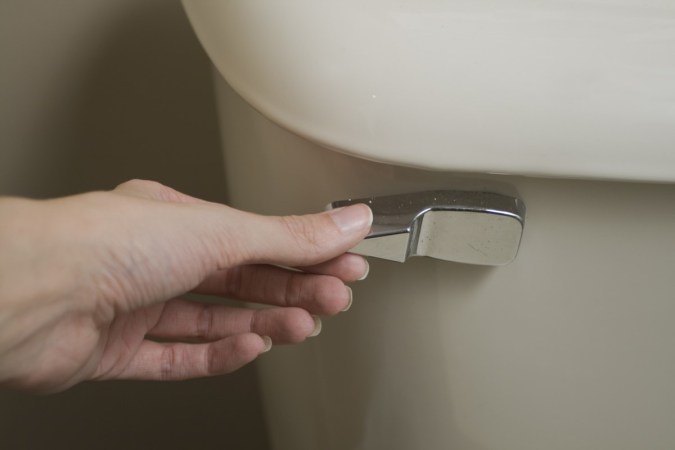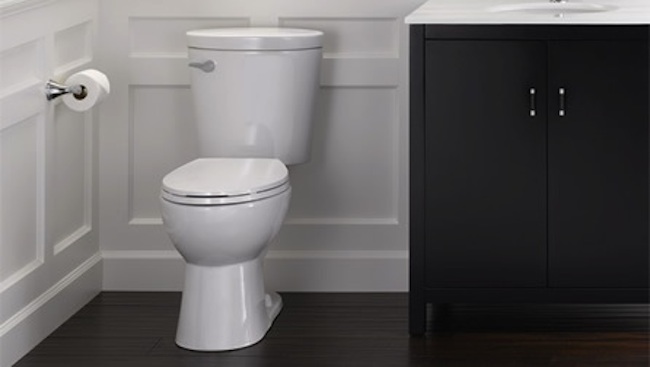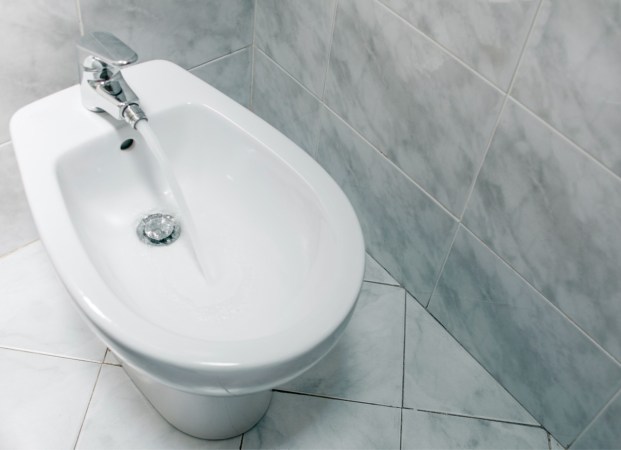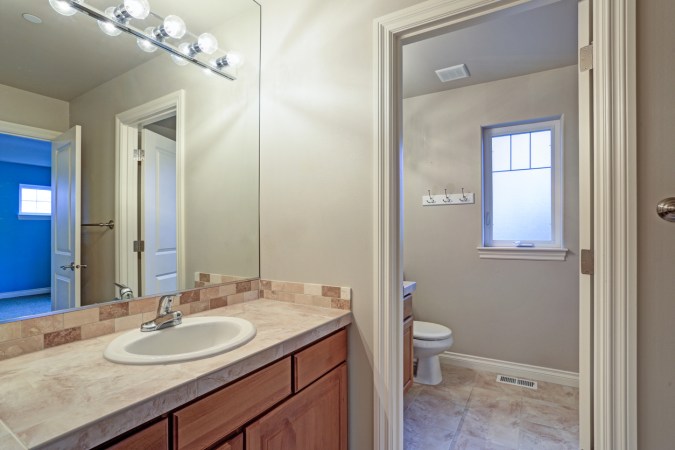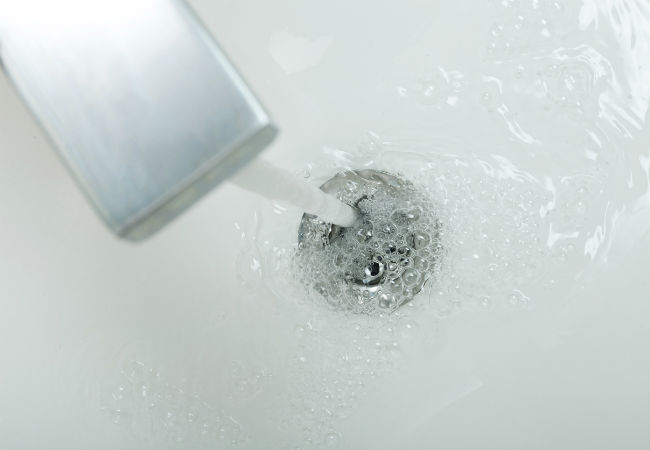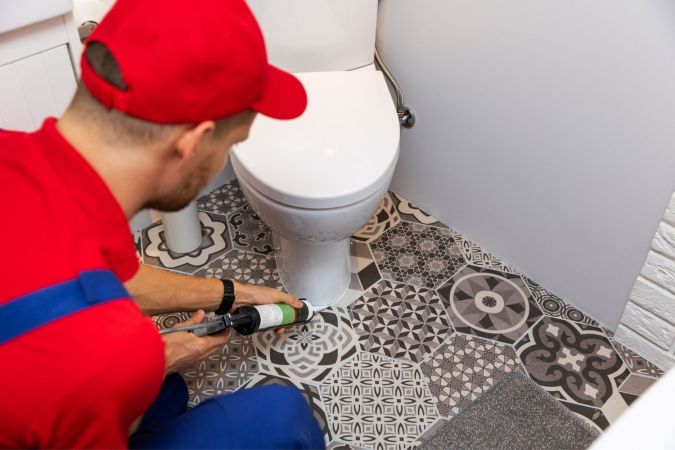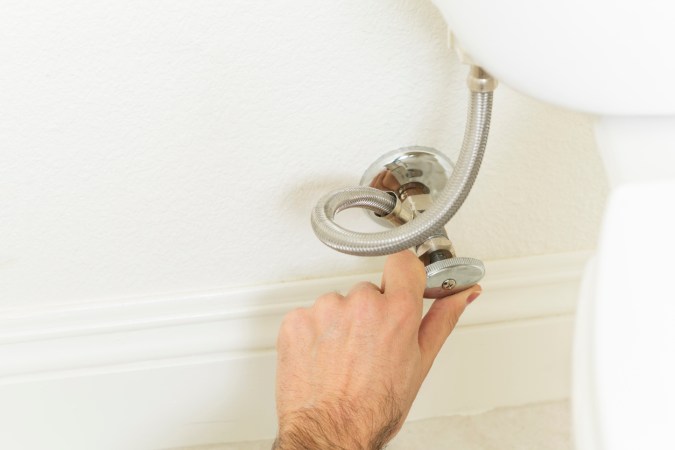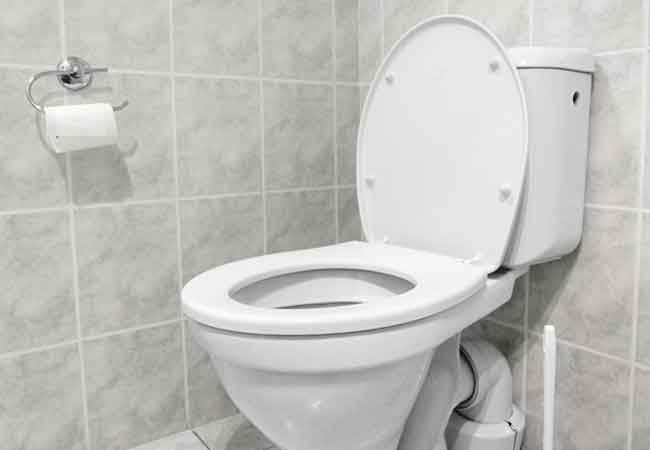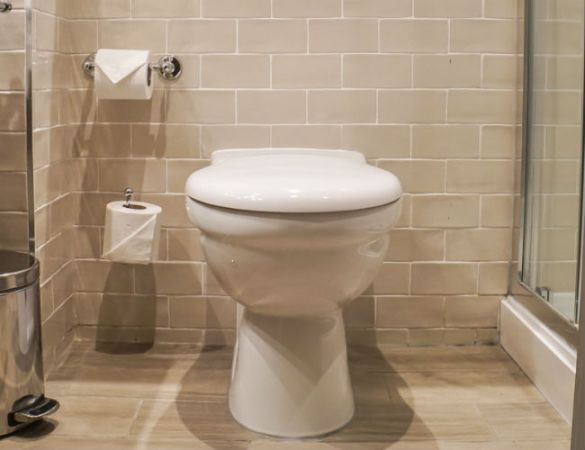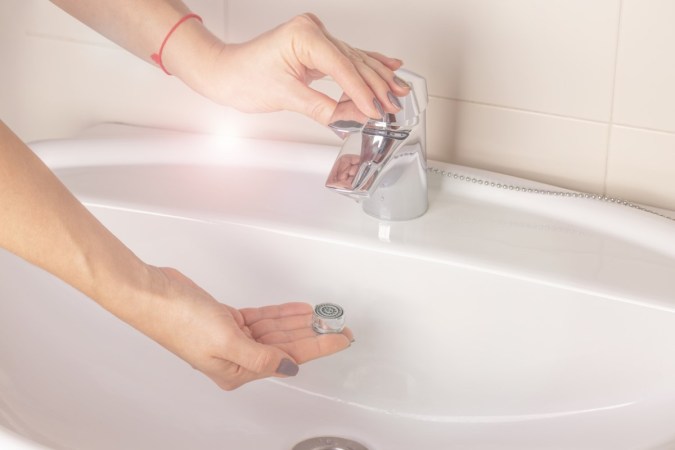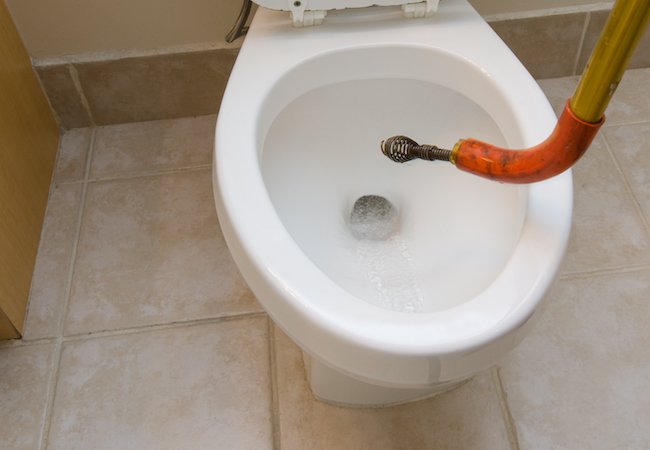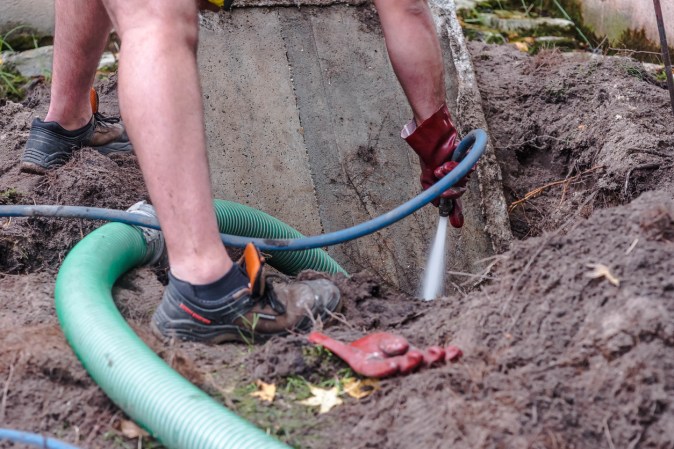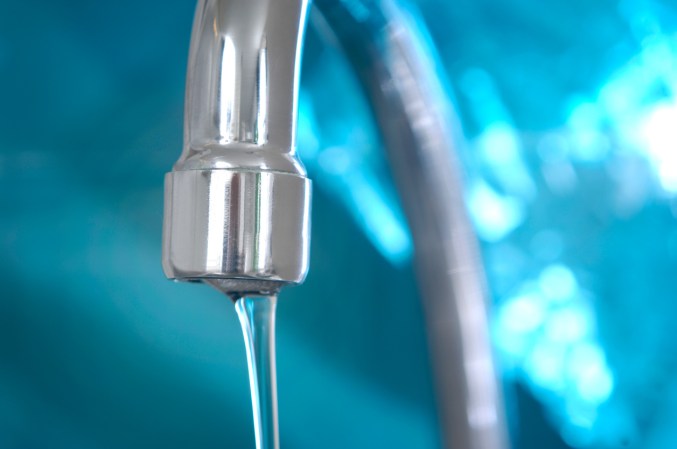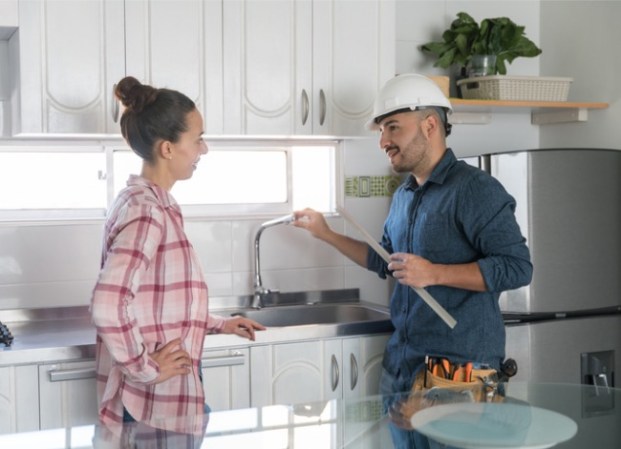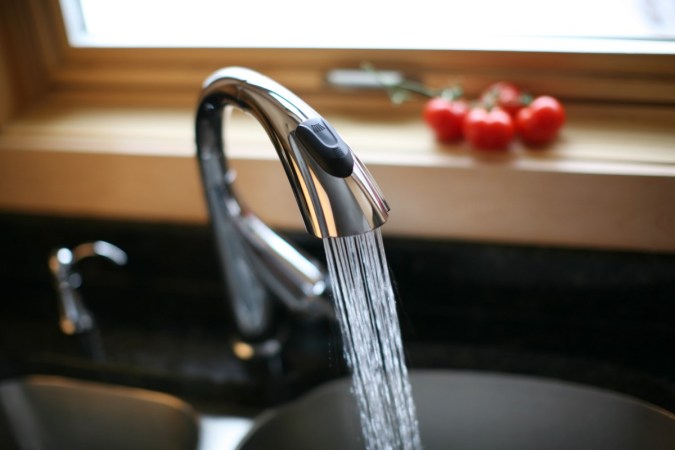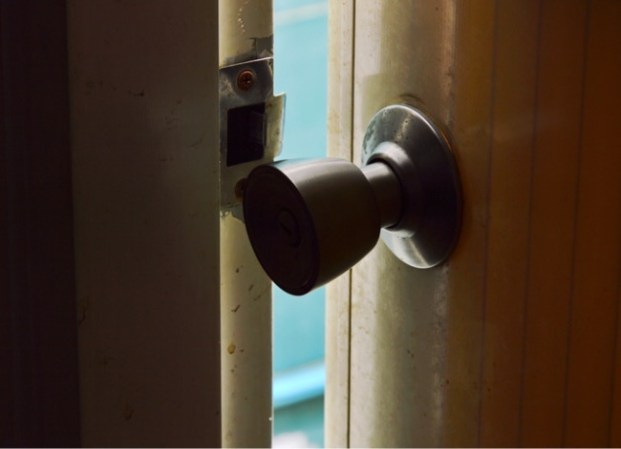We may earn revenue from the products available on this page and participate in affiliate programs. Learn More ›
Q: Help! My toilet won’t flush. The handle moves freely, but nothing happens when I press down. Can I fix it without calling a plumber?
A: Toilet not flushing? For what it’s worth, you’re experiencing an issue that happens every now and again in almost every home. Luckily, it’s easy to narrow down the cause and find a fix that works for you. If your toilet won’t flush, follow these steps to send your problem out to sea.
Check the water shut-off valve.
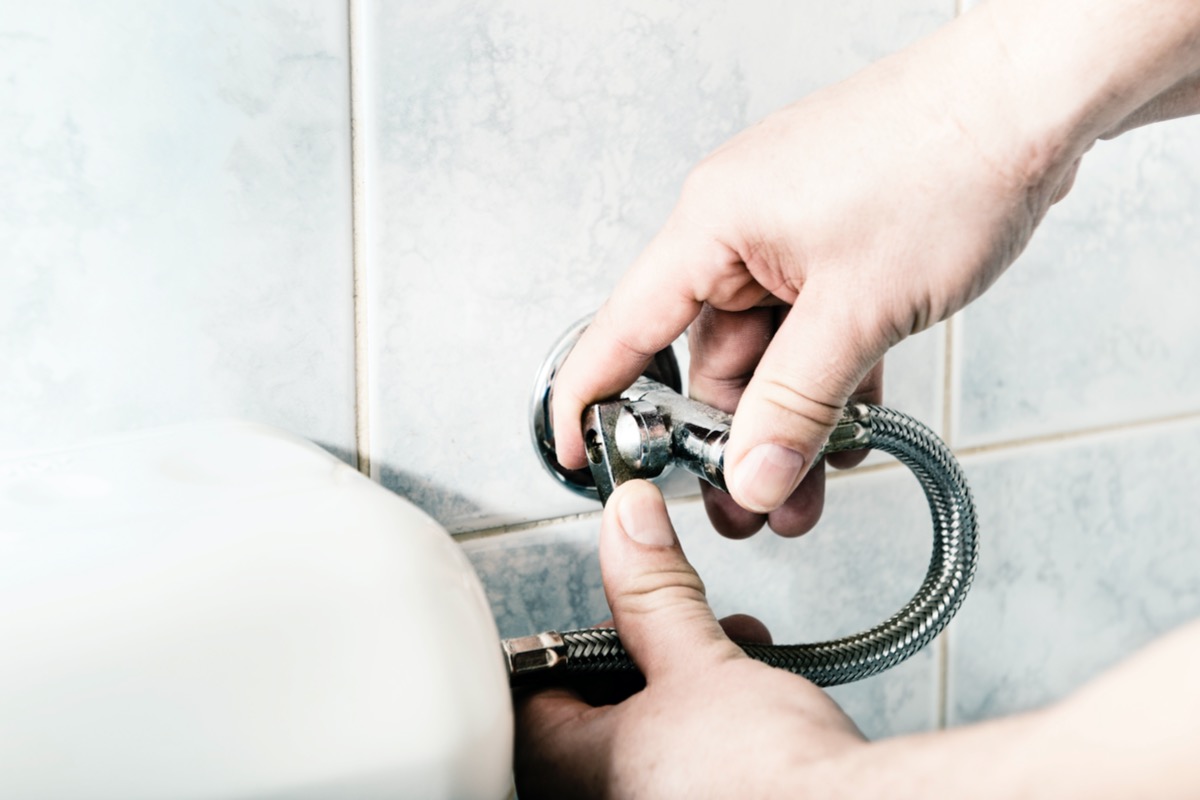
Occasionally, friction from a nearby object or a deep-cleaning session can nudge it to the off position, preventing water flow to the tank. This leaves just one or two flushes before the water level gets too low for the toilet to work properly. To see for yourself, look just behind the base of the toilet, a few inches from the floor. The toilet’s water shut-off valve should jut out slightly from the wall and be turned all the way to the left; if it’s not, twist the head counterclockwise, and then give it a minute to reset before trying to flush. Once you’ve restored the flow, your issue should be water under the bridge.
Determine whether you have a clogged pipe.
Heavy paper products are usually the culprit here, and they can be dealt with easily. To clear things up, first, make sure the water in the bowl isn’t high enough to overflow when you insert a plunger. (If it is, use a disposable plastic cup to ladle the contents into the bathtub. Follow up with 2 to 3 capfuls of bleach and a stream of hot water to wash everything down the tub drain.) Place the flange of the plunger directly into the drain opening. Use the plunger to seal the drain while pumping up and down for 20 seconds. If the clog has cleared, you should be able to remove the plunger and flush right away. Prevent another problem by switching to lower-ply toilet paper, and remember that flushing paper towels or other heavy products is pretty much asking for trouble.
Check the flapper.
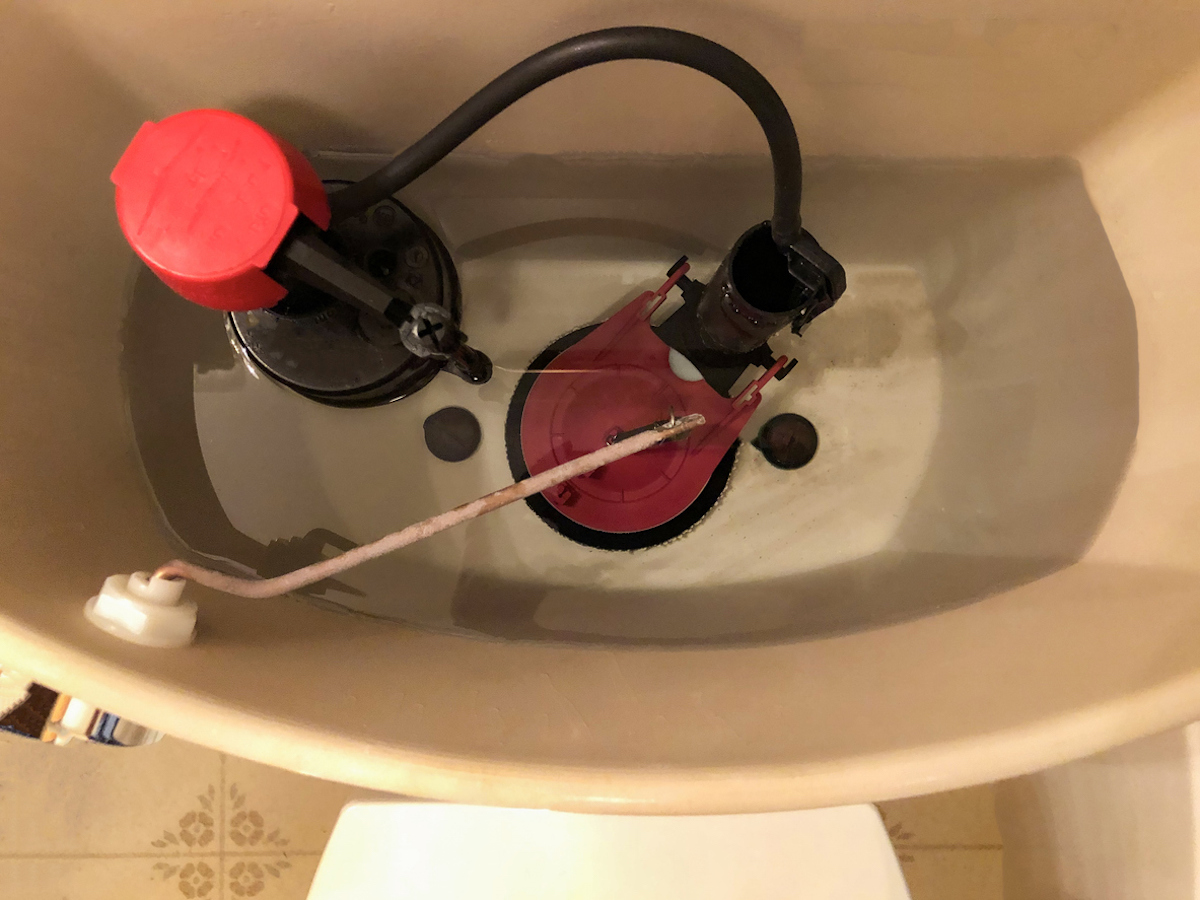
Carefully remove the top of the tank and set it aside for a moment so you can check if the toilet flapper, which is shaped like an inflated balloon and often red, is causing the backup. If it looks warped or damaged, you’ll likely have to replace the toilet flapper. Luckily, this part usually costs less than $10 at your local hardware store and isn’t hard to swap out yourself.
Adjust the lift chain.
If your flapper shows no signs of a problem but there’s too much slack in the line, it won’t react when you try to flush. You can adjust the length easily for a better connection by slipping a different link over the hook at the lever end. Leave just enough length so that the flapper can close completely, and nothing extra. Now, pushing the handle should cause the flapper to whisk water through the tank, into the toilet, and down the drain as it should.
Clear the inlet holes.
You may not be able to see them, but just beneath the rim of the toilet are a series of holes that release water from the toilet tank to start the toilet flushing process. These jets are angled, helping to create the circular motion that rinses away waste. These jets can sometimes become jammed with mineral deposits and bacteria, preventing water from flowing out of them. If the commode won’t flush, it may be because these jets have become clogged.
No, you don’t need to stick your head in the toilet to inspect the jets—just use a mirror to take a peek. If you see orange and black, bacteria is likely the culprit. Light-colored deposits are often mineral-based. To fix the problem, pour a solution of bleach and water into your toilet’s overflow tube in the tank. Let it sit for a few minutes, then flush the toilet. Clean each jet using a piece of wire—a cut coat hanger will work in a pinch—and then flush again.
Pour water into the toilet.
While this may sound too simple to work, hot water and dish soap is an effective way to fix a toilet that won’t flush. Heat a gallon of water on the stove, then add a squirt or two of dish soap to the toilet bowl. Pour the water into the toilet, ensuring that you don’t pour so much that it causes the bowl to overflow. Wait about 15 minutes to give the soap and hot water a chance to soften the clog, then flush it.
Turn on the bathroom tap.
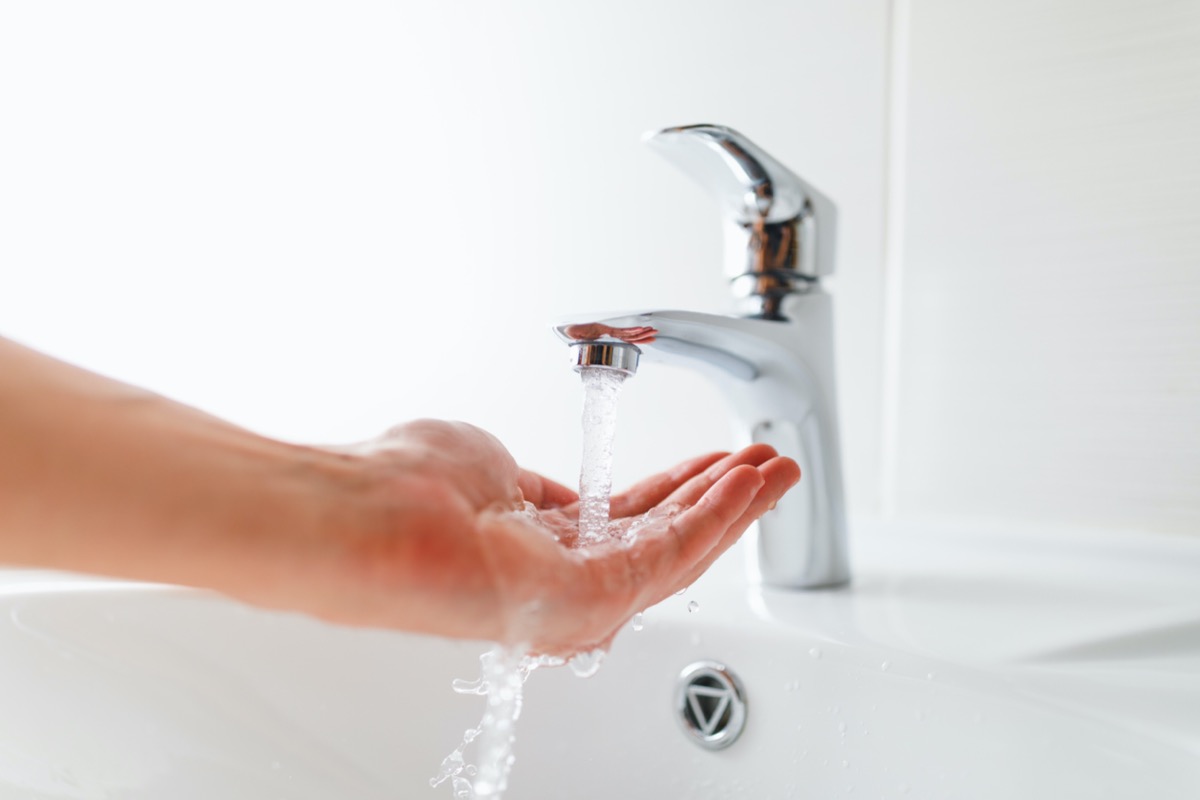
If there’s no water in the toilet tank, the problem may not be with the toilet but rather with your home’s water. The toilet will not flush without a water supply. First, check and make sure the house still has water by turning on the bathroom sink tap.
If you have indeed lost water to the house, call your water provider to determine if there is a water outage due to maintenance or a potential water main break near your home.
Ask your plumber to assess the toilet drain pipe.
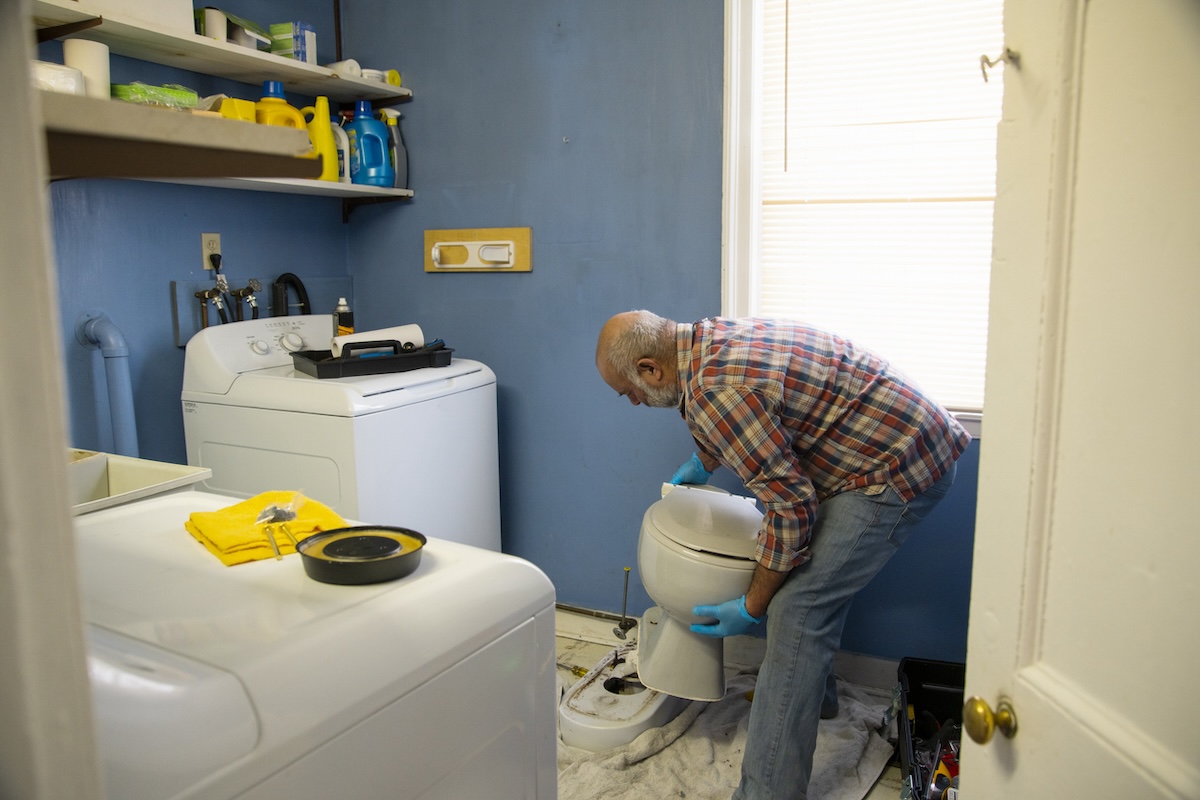
If this is not the first time your toilet bowl won’t flush or if the toilet is not flushing well, then chances are the problem isn’t the toilet itself but rather the plumbing beneath it. A toilet drain must have a downward slope for wastewater to flow quickly out of the toilet bowl, through the pipes, and to the main sewer line. If that downward slope doesn’t exist or simply isn’t steep enough, then the toilet mechanics won’t function properly, causing the toilet to stall. Have a professional plumber inspect the plumbing lines and redesign them if it’s lacking the required slope to flush properly.
Hire the plumber to unclog the toilet.
If you’ve tried all the methods for how to get a toilet to flush and it simply won’t flush, then it might be time to throw in the towel and hire a plumber. The average cost for a plumber to unclog a toilet is between $200 and $700, according to FIXR, an online resource for cost and hiring advice for home remodeling projects. If the problem involves a problem with the drain lines beneath the toilet, the price could be even higher.
Even so, you’re not necessarily in hot water. There are plenty of small issues a plumber can solve without much fuss or financial strain. Good luck!

